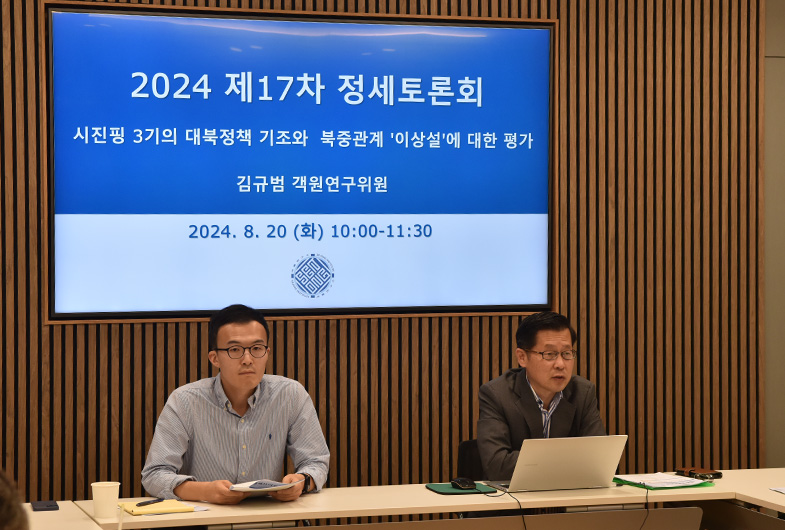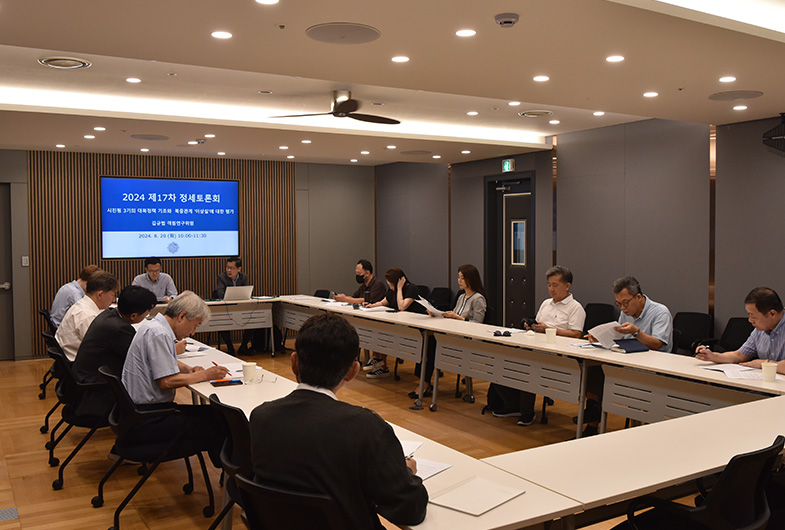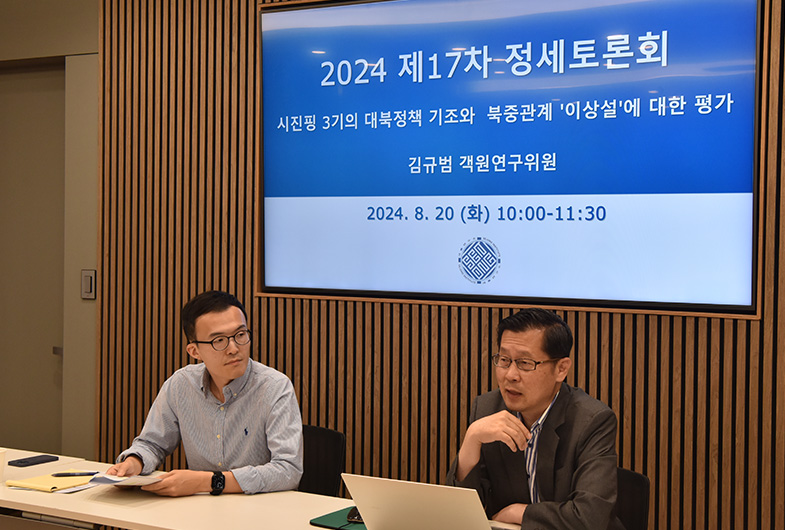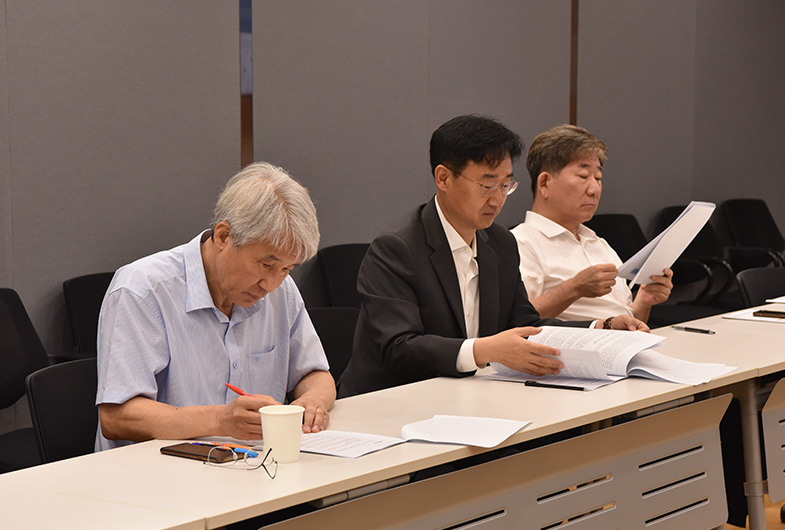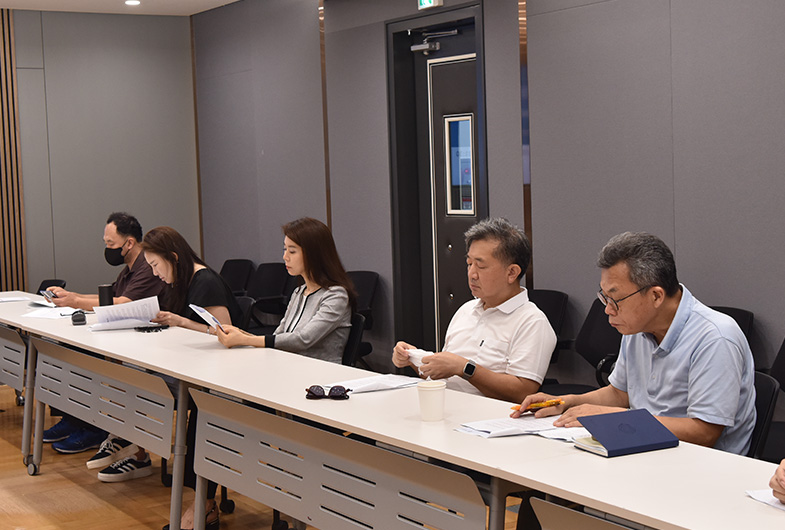On August 20th, GyuBeom Kim, Visiting Research Fellow gave a presentation on "Trends in U.S.-China relations since 2018 and an assessment of the “relationship anomaly" at the 17th Colloquium.
The discussion was moderated by Seong Chang Cheong, Director of the Center for Korean Peninsula Strategy
While China and North Korea have traditionally been characterized as allies, in reality, the two countries have repeatedly come into sharp conflict due to changes in the international situation and national interests. Since North Korea conducted its first nuclear test in October 2006, the two countries have been in at odd relationship over North Korea's nuclear and missile provocations and China's sanctions against North Korea, and the current relationship is an extension of it.
Since the so-called “Hanoi No Deal” in February 2019, the situation on the Korean Peninsula and its neighboring countries situation has virtually returned to the beginning, with the US-China and US-Russia conflicts intensifying, and resuming North-South conflict. Under these circumstances, North Korea and China have maintained “strategic communication and cooperation,” but contrary to expectations, bilateral economic cooperation between North Korea and China has remained stagnant. This paper analyzes the aspects of bilateral cooperation that have been strengthened and the factors that limit the expansion of economic cooperation.
North Korea's so-called “military adventurism,” including its nuclear and missile provocations, is perceived as a risk that must be managed by China, as it could continue to provide a rationale for further deployment of U.S. strategic assets and enhanced U.S.-ROK-Japan military cooperation, leading to factional confrontation in Northeast Asia. The rift in U.S.-China relations and US-Russia conflicts are creating a favorable environment for North Korea to expand its diplomatic presence, and Pyongyang's willingness to capitalize on great power conflicts is a factor that limits China-North Korea cooperation.
Following President Xi Jinping's visit to North Korea in June 2019, expectations were raised that economic cooperation between China and North Korea would significantly expand. However, the opening of borders and the restoration of trade volumes has been slower than expected and there are no clear signs of increased cooperation. In June 2024, it was analyzed that China would become unhappy with North Korea's behavior as relations with Russia showed significant progress, and there was a surge in media reports of unfriendly events and phenomena between North Korea and China around this time.
The rapid development of North Korea-Russia relations stood in sharp contrast to China-North Korea relations, highlighting their relatively slower pace of restoring ties. Indeed, the political and military closeness between North Korea and Russia is inconsistent with China's foreign policy, which has opposed the emergence of a factional confrontation between the United States, Japan, and South Korea, and could become a strategic burden.
